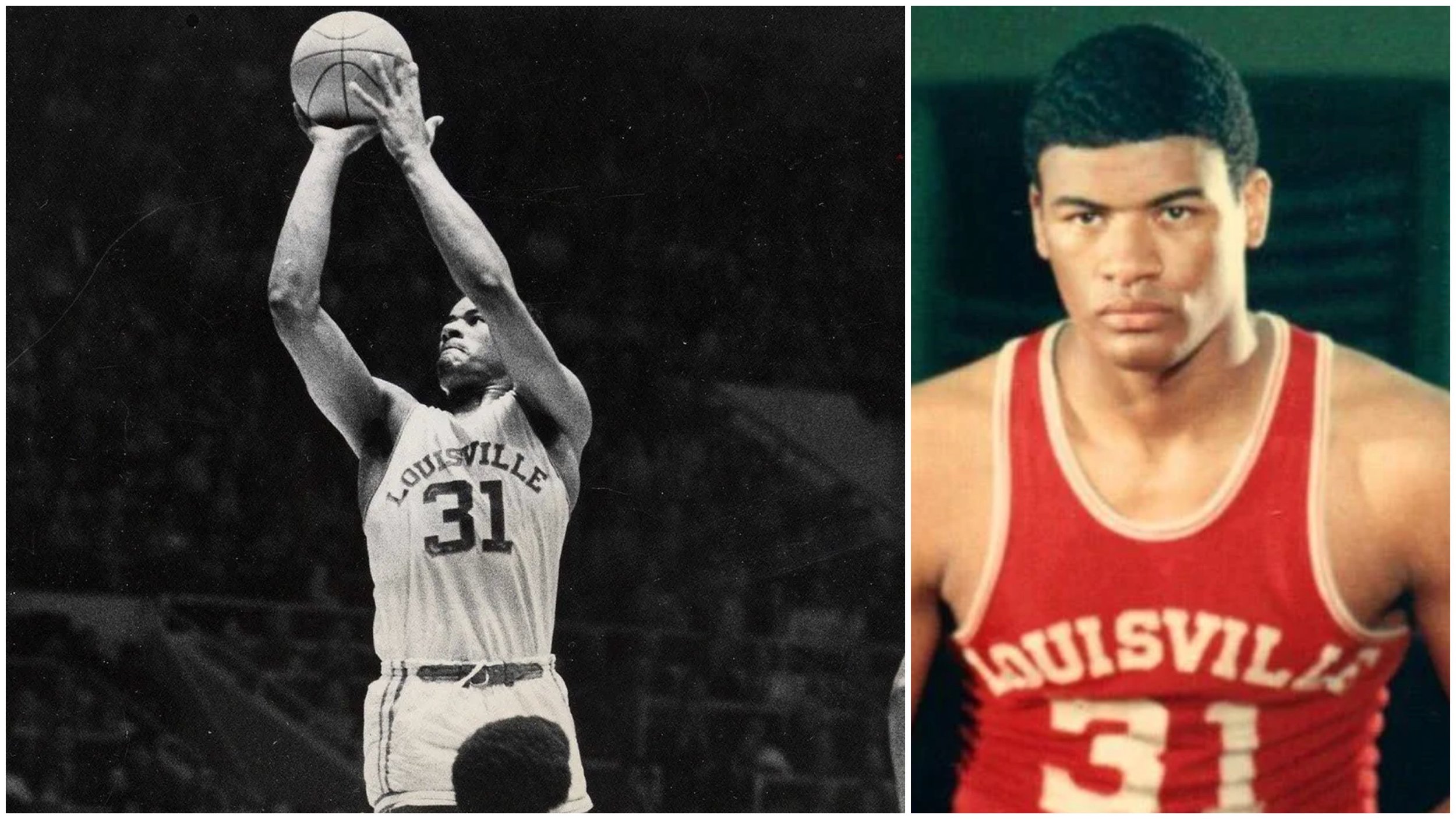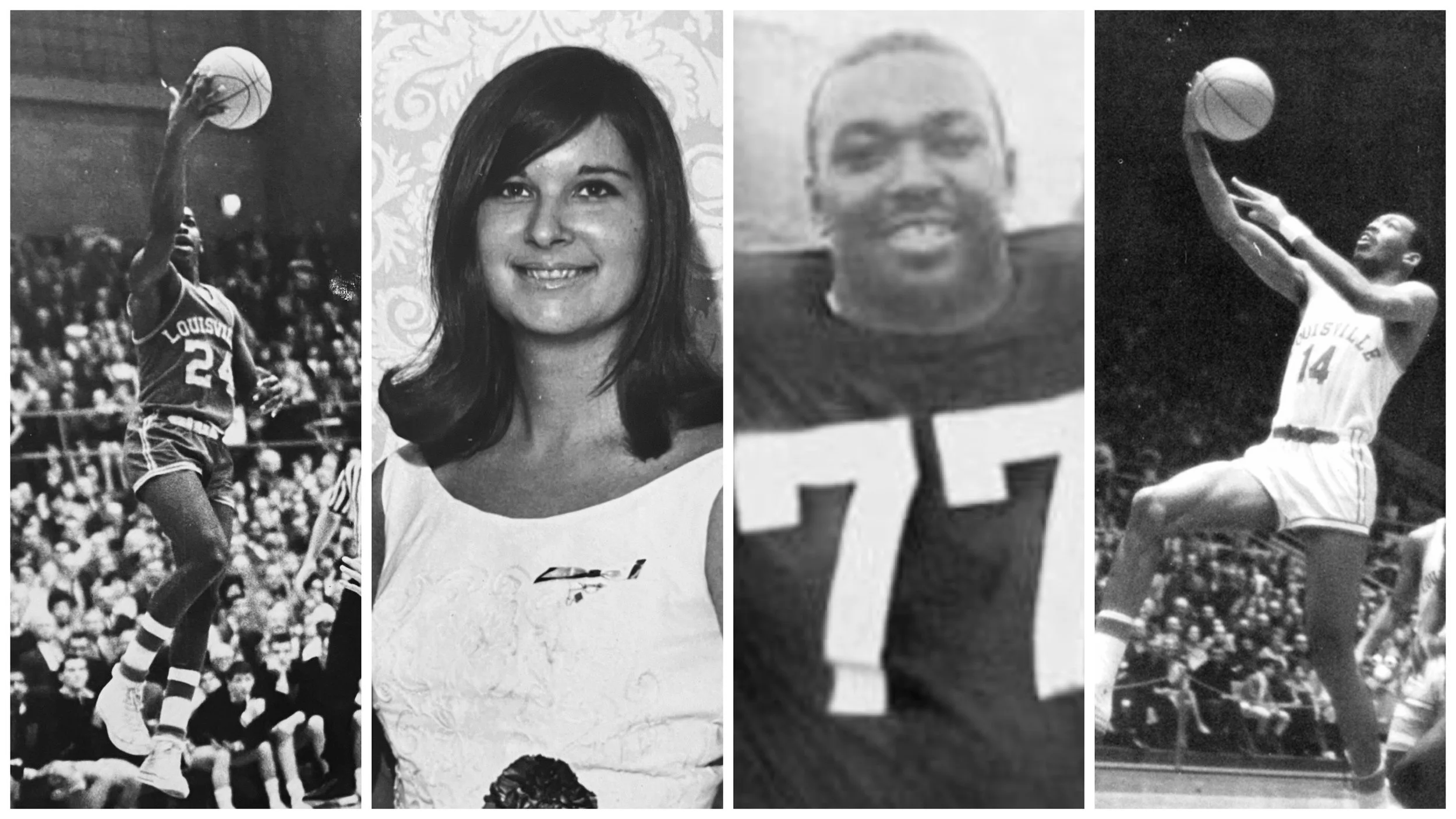The Memory Lane Group
In June 2020, two old friends ran into each other amidst a sweeping global pandemic. They had first met in the 1960s when the most insidious disease being fought in America was institutionalized racism. She was white, he was Black, and once upon a time, they were residents of the same dorm building on the campus of The University of Louisville where they shared common spaces and ideas. And now? They both lived in the same building near Cherokee Park with their spouses. “Some things are just so cyclical in the strangest ways, aren’t they?”
As Jessica Loving and Charlie Johnson continued to chat, the conversation turned to a friend who had recently passed, NBA Hall of Famer and former UofL Center Wes Unseld. Charlie was one of the first black football players at UofL in the early 1960s and he mentioned a regular Zoom call that had been setup between himself and a few of the basketball guys from back in the day since Wes’ passing as a way to catch up, stay in touch and potentially even plan a statue to honor Wes’ legacy in Louisville. He invited Jessica to join their Memory Lane Group.
Wes Unseld during his UofL years. Photos by The Courier Journal.
Also on the call were Eddie Whitehead, his son Luke Whitehead, Wade Houston and others including Dave and Lonnie Gilbert, and Lyman A. Johnson. Eddie and Wade along with Sam Smith were the first 3 Black basketball players to break the color barrier on UofL’s men’s basketball team in 1962. Wes was recruited in 1964 thanks to some of these guys and a coach that was willing to enter the Unseld family home and meet with them unlike Adolph Rupp from UK who reportedly refused to leave the car and left a sour impression on the Unseld family. In the early 60’s, this wasn’t shocking or uncommon behavior to the Unseld family or any other black family, but it was enough to keep their son, who was graduating from Seneca High School soon, close to home.
Jessica was the first woman and white person invited into their virtual group even though they all shared decades of friendship amongst them. Jessica caught them up on her ongoing work for social justice including her tenure as the executive director of the ACLU of Kentucky, a continuation of the advocate they knew her to be even as a young woman in college. Eddie remarked, “Jessica is one of the guys now.” His son Luke, currently a Diversity and Inclusion partner for Brown-Forman, cut in and said, “Now you’re in my area, dad. Jessica doesn’t have to be a guy to be part of the group. She’s now a member of the team.”
JUST KIDS
“I think something that really strikes me now when I think back on those times in college is that we were all just kids,” said Jessica recently. “We were friends and classmates so I don’t know that I was able to understand how challenging it must have been for the guys, how scary. Sam and Eddie were only eighteen and Wade was only seventeen years old. Just kids.”
They were all far from home too. Sam was from Hazard, KY, Eddie from Cincinnati and Wade from Alcoa, TN. Charlie, the football player, hailed from Columbus, GA and helped acclimate the new basketball recruits to their new city. Charlie had already been at UofL for a bit and learned the safe places where they could get haircuts and a bite to eat off campus. Jessica said that the campus itself was “slowly but surely becoming enlightened” in those days but was certainly not free from the despicable racism that still had a chokehold on the reluctantly integrating South. “Eddie told a story on one of our calls recently, they can be very candid, where a white football player jumped up on a table in the dining hall and began making monkey noises at him as he entered for the first time,” said Jessica. Charlie shared a story about traveling with the football team to Memphis. They were booked to stay at the famed Peabody Hotel, where Charlie was greeted with the most despicable version of Southern Hospitality. At first, the hotel employee that greeted them suggested that Charlie should stay elsewhere, perhaps the Black-owned Lorraine Motel where Martin Luther King Jr. would be assassinated only a handful of years later. Their coach, Clark Wood, said that Charlie was part of the team and if he wasn’t welcome at The Peabody, the whole team would be lodging elsewhere. The employee relented and gave Charlie a room but said he was barred from the hotel restaurants. Jessica laughed and went on to say, “Charlie says he really enjoyed getting room service.”
(L-R) Eddie Whitehead, Jessica Loving, Charlie Johnson and Wade Houston during their UofL years. Photos courtesy of the respective subjects.
Jessica says that a majority of the stories shared in their memory lane group are good ones though. Like Jessica recalling Eddie’s penchant for singing “My Girl” at college mixers with live bands being supplemented with Luke’s childhood memories of Eddie singing the same song to his mother throughout his life.
Jessica went to demonstrations and marches throughout college and graduate school, she even walked out and resigned from her sorority when they were reluctant to admit sisters of color and still, she looks back on her early years with these guys and wonders, “Could I have done more?”
BASKETBALL AND BROTHERHOOD: BREAKING BARRIERS
The idea of erecting a statue to commemorate Wes didn’t come to fruition after the group reached out to his family and learned that they would prefer the monument to be close to them in Baltimore where Wes had a sterling career playing for their NBA team, the Bullets, and spent the remainder of his life.
But Jessica’s mind was racing with all these stories, old and new, and how important they could be outside of their Zoom calls. But how? Maybe an oral history? No. It should be bigger. It should reach more people. Maybe a documentary.
The idea stuck with the group and wheels began turning. With Jessica and Luke acting as executive producers, they began gathering archival images, scheduling interviews and working with videographer Frederick Reynolds to put the pieces together along with some editing help from award-winning WAVE 3 Sports Director Kendrick Haskins.
The first integrated basketball team at The University of Louisville in 1962. (L-R) Sam Smith #10, Eddie Whitehead #15, and Wade Houston #20. Photo courtesy of Eddie Whitehead
“I think this is an important story to tell because it’s about more than basketball,” said Jessica. “It’s a story that’s inherently about the Civil Rights effort and the work to create a more inclusive society.” Jessica has spent her entire adult life fighting for Civil Rights with the same conviction she had in college and notes that there has been a palpable backlash to progress in recent years with the rise of white supremacist groups and she thinks that this story has the potential to bridge some societal fractures by starting from a shared love of the sport. “Don’t get me wrong, this is an important basketball story too,” remarked Jessica, “we’re talking about the era when UofL really began to emerge as a powerhouse because they made the decision to widen their recruiting pool and integrate the team. A lot of young people don’t know these stories and we thought it was important to make history come alive through figures they could empathize and identify with.”
The film is still coming together, but you can get a sneak preview of sorts by attending Kentucky to the World’s upcoming program of the same name. Our panel will feature central figures Eddie Whitehead and Wade Houston along with two other barrier breaking UofL basketball alumni, Judge Derwin Webb and current UofL Director of Development and hall of fame Black women’s basketball player Valerie Combs.
Mark your calendars for April 12 and get your tickets here.




